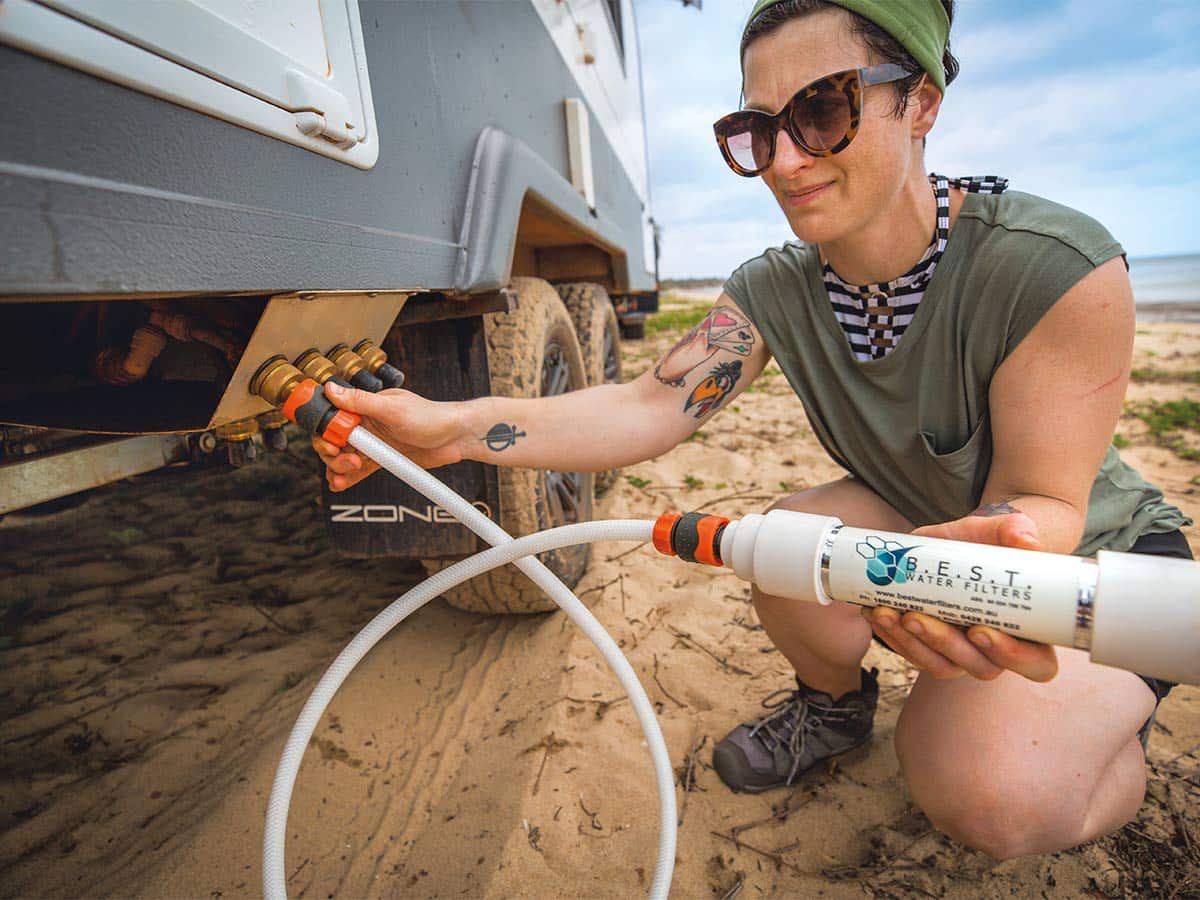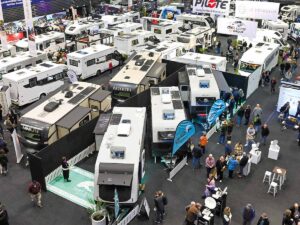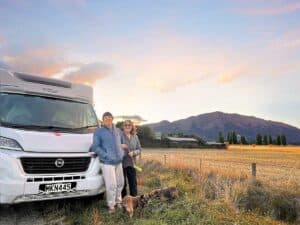When it comes to deciding whether to keep your water tanks full or empty, there’s an array of conflicting advice online. Backed by sound plumping and filtration expertise, the team at B.E.S.T. Water Filters offer their sound advice on the issue.
Short answer: Keep them full.Long answer: Maintaining a full freshwater tank is recommended for several crucial reasons. Firstly, the idea of draining tanks to prevent water from becoming contaminated with bacteria is not foolproof. Even when drained, residual moisture tends to linger.
Tank structures often incorporate reinforced ribs that can retain water, while pipework can have low points that trap moisture. The water pump’s diaphragms will also retain water, which is necessary to prevent the pump seal from drying out. Having said that, you’ll never dry the system out completely, leaving multiple areas for contamination to occur.
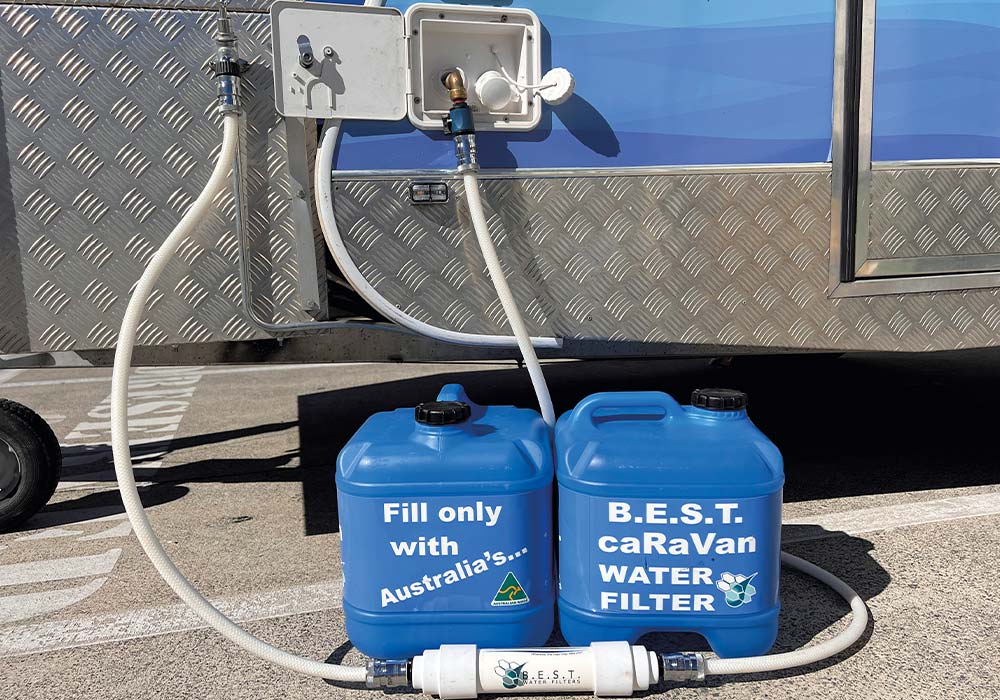
Additionally, the hot water system within your RV invariably holds water. It’s also worth being aware of the potential presence of hydrogen gas in hot water systems. A hot water system can still generate flammable hydrogen gas, even when not in use. Safely dissipate this gas by gently opening the hot taps while ensuring there are no naked flames from the gas hotplate, etc. in close proximity. A useful tip when in storage is to consider keeping your pump turned off and hot water taps on/open. Note: Prior to storage, always empty your grey and black water tanks.
Filling your tank with a quality and reputable RV water filter can assist in controlling bacterial growth. If you fill your tank without a filter or with a domestic household filter, it will be necessary to introduce a sanitiser to prevent water spoilage. The chlorine in tap water is insufficient in preserving water quality or preventing bacterial growth, as the chlorine will turn to gas and release from the water, leaving your stored water unprotected.
It’s essential to recognise that your RV’s water tank differs from a household rainwater tank, which benefits from sunlight exposure, airflow, and consistent usage to maintain freshness.
Your RV tank remains in complete darkness, has little to no airflow, and can sit unused for extended periods. Water authorities rigorously test drinking water for E.coli bacteria, and the contamination risk increases with water stored in RV water tanks. Some online advice suggests that blocking UV exposure will prevent bacteria growth (E.coli), but such comments often overlook the realities, e.g. septic tanks – where the bacterial growth is exponential in dark enclosed tank environments. Likewise for an RV tank. Bacteria are neither male nor female and can self-reproduce, hence one live bacterium in your freshwater tank could make your water quite contaminated by the time you’re ready to hit the road again.
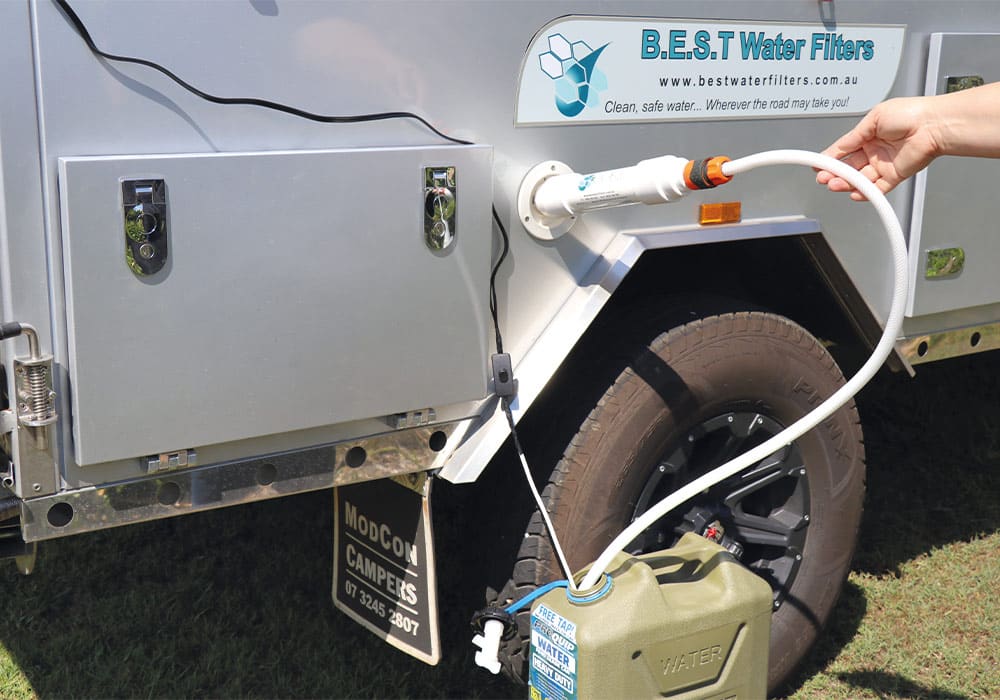
A recommended practice during storage is to run your RV appliance systems periodically. Activate the refrigerator, heater, water pump, and any other applicable components.
For your water, if an external tap outlet is present on your RV, run a hose from it through, for example, a B.E.S.T. RV Inline Water Filter and back into your tanks, effectively ‘re-circulating’ to refresh the water and maintain pump functionality, all without water loss.
This procedure also serves to flush your hoses, keeping them fresh as well.
About B.E.S.T.
Offering water filters to New Zealand Australian RV owners, B.E.S.T. Water Filters was started by third-generation plumber Colin Hopgood. During his plumbing apprenticeship in the 1970s (when he installed his first caravan filter), Colin saw an increased number of enquiries for filtration systems. However, the knowledge and truth about how filters worked seemed to be scarce at the time. The fact that a water filter was rated to treat 20,000 litres yet had to be replaced every six months after only 2000 litres had gone through it, led Colin to explore and discover the reasons behind this and what health complications were present with basic filter systems. This was the start of his passion (and obsession) with water filters.
An ongoing commitment to exploring innovations and educating about RV water filters has continued to be a key strength for positioning B.E.S.T. Water Filters as a leader in the market.
The business remains family-run, with manufacturing carried out in Queensland and all Australian-made, designed, and owned.

